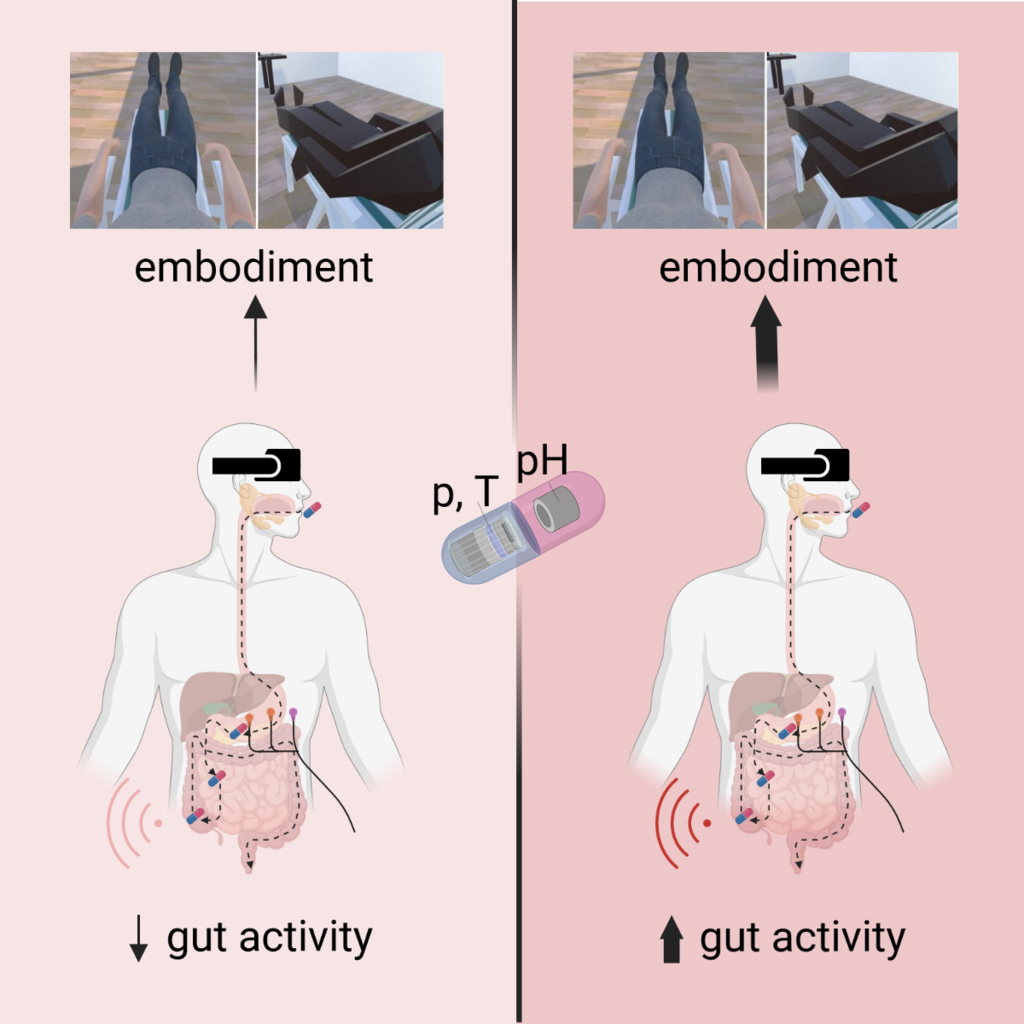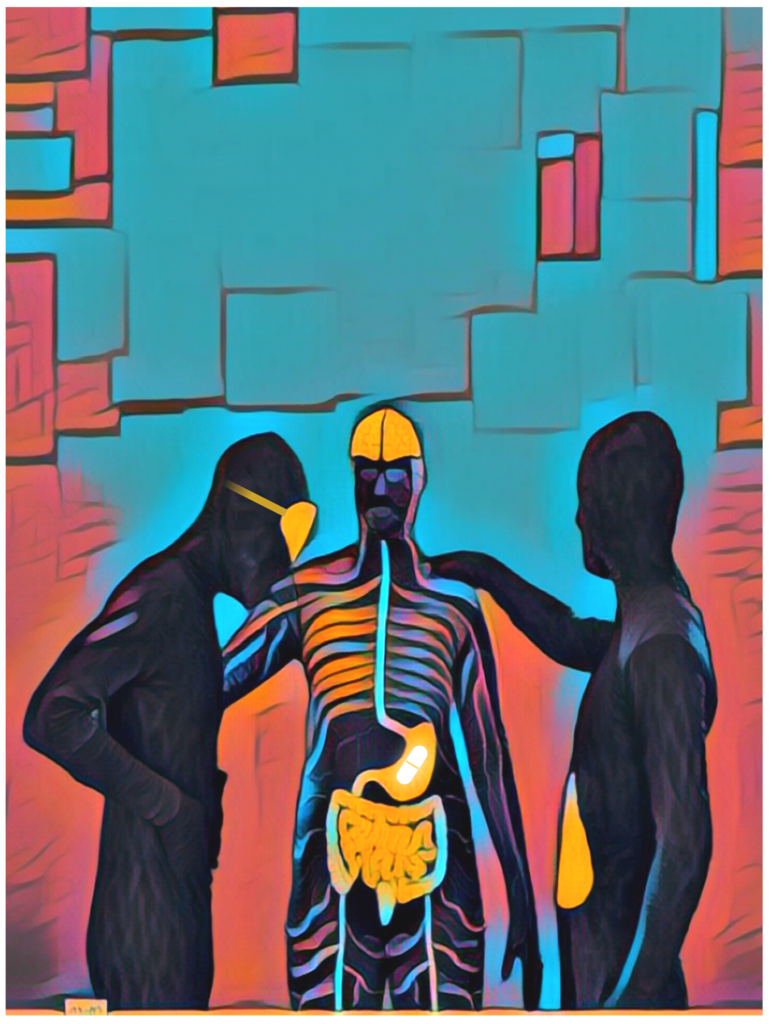
"I have got butterflies in my stomach" is not just a metaphor: it is the smart pills that tell us
A new all-Italian study published in iScience has found that the awareness of having a body and residing within it is a sensation strongly correlated with physiological parameters of our body, such as temperature, blood pressure, and acidity of the stomach and intestines.
The study was developed in the laboratories of the Department of Psychology at Sapienza University in collaboration with the Neuroscience and Society laboratory of the Istituto Italiano di Tecnologia (IIT) in Rome, CLN2S@Sapienza. The research showed that the deepest organs of our body, such as those belonging to the gastrointestinal tract, are the only ones able to always pick up everything around us through signals sent to the peripheral nerves.
"The problem," says Salvatore Maria Aglioti, Professor at Sapienza University and Senior Researcher at IIT, "is that it is one thing to study the role of cardiac or respiratory activity in body awareness, as we have done before; it is another thing to study the activity of the gastrointestinal tract. Stomach and intestines are deep, convoluted organs that are normally investigated using very invasive probes: anyone who has had a gastroscopy or colonoscopy knows this from experience".
To overcome this obstacle, the researchers explored the connection between stomach, intestines and body perception through a highly advanced technology never before employed in the field of cognitive neuroscience: smart pills equipped with a miniaturised thermometer, manometer and acidity sensor and swallowed like regular tablets.
Through these devices, they could record temperature, blood pressure and gastrointestinal acidity at regular intervals. The data, once collected, were transmitted to an external transceiver, all wirelessly connected.
In order to find out whether there really was a correlation between the physiological state of the gastrointestinal system and body awareness, participants had to ingest one of these smart pills and, through a 3D viewer, observe a virtual body.
This avatar could present itself in two different situations: the first in which this character looked similar to the patient, was in the same position and breathed like them; the second in which the character was different from the participant. At the end of this experience, the patient had to describe how 'embedded' they felt in the virtual body they had just been shown. This procedure had to be repeated three times, depending on the position of the smart pill: the first in the vicinity of the stomach, the second in the small intestine and the last in the large intestine.
"This is a ground-breaking study", says Alessandro Monti, first author of the study, "which allowed researchers to understand how awareness and activity of the gastrointestinal tract are interconnected: when we present a strong awareness of our body, our internal organs are more active than when this sensation is lacking".
Giuseppina Porciello and Maria Serena Panasiti, clinical neuroscientists and co-authors of the study, note that the new finding has implications for a number of pathological conditions. It may, for instance, help researchers understand whether it is true that signals from the gastrointestinal tract play a crucial role in eating disorders and depersonalisation and derealisation disorders. Not only that, through 'smart' pills it will be possible to understand whether the physiology of the gastrointestinal tract can interfere with an individual's emotions and moral reasoning.
Refrences:
Monti, A., Porciello, G., Panasiti, M.S., Aglioti, S.M. (2022). Gut markers of bodily self-consciousness in men. iScience, in press.doi: https://doi.org/10.1016/j.isci.2022.105061
Further Information



